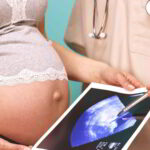Are ectopic pregnancies genetic? Unraveling the genetic origins of this medical condition is essential yet challenging. Understanding the complexities surrounding ectopic pregnancies can overwhelm anyone seeking reliable information. At rotviral, we are committed to providing well-researched insights on the genetic factors contributing to ectopic pregnancies, offering our audience the clarity they need.
Table of Contents
- Introduction
- Understanding Ectopic Pregnancies
- Is There a Genetic Connection?
- Beyond Genetics: Analyzing Diverse Risk Factors for Ectopic Pregnancies
- Diagnosing and Treating Ectopic Pregnancies
- Conclusion
- Frequently Asked Questions (FAQs)
Introduction
Ectopic pregnancies are a medical condition that can physically and emotionally challenge women. While relatively rare, occurring in about 1-2% of pregnancies, they can have severe consequences if not detected and treated promptly. One question that often arises is whether ectopic pregnancies have a genetic component. In this article, we will explore the genetics of ectopic pregnancies and what factors may contribute to their occurrence.
Understanding Ectopic Pregnancies
To truly appreciate the genetic intricacies involved in ectopic pregnancies, it’s crucial first to establish a clear understanding of what this phenomenon entails. Ectopic pregnancies represent a perplexing deviation from the norm in pregnancy. They transpire when a fertilized egg, instead of taking its rightful place within the uterine walls, embarks on a misguided journey. This misguided journey typically leads it to implant and thrive in a location where it simply cannot succeed – the fallopian tube. This scenario is a stark departure from the ideal pregnancy scenario where the fertilized egg securely nestles within the uterine lining, primed for growth and development.
Now, why is this ectopic implantation such a grave concern? The answer lies in the fallopian tube’s fundamental incompatibility with the growing embryo’s requirements. The fallopian tube lacks the necessary space and resources to nurture a developing pregnancy. This misplacement not only spells doom for the potential fetus but also poses significant risks to the health and well-being of the expectant mother.
The ramifications of an untreated ectopic pregnancy are far-reaching and can be genuinely alarming. Left unaddressed, it can lead to a cascade of serious health complications for the mother. These complications can include severe internal bleeding, rupture of the fallopian tube, and excruciating pain. In the worst-case scenario, it can even result in maternal mortality.
Therefore, understanding the intricate biology and genetics underlying ectopic pregnancies is not just a matter of scientific curiosity; it’s a critical aspect of maternal health and reproductive medicine. By comprehending the genetic factors that may contribute to ectopic pregnancies, we can strive to develop better diagnostic tools, treatments, and preventive strategies to safeguard the health of mothers and the potential for future successful pregnancies.
In summary, ectopic pregnancies are enigmatic occurrences in reproduction, with profound implications for both the embryo and the expectant mother. Delving into the genetic aspects of this phenomenon is a crucial step toward unraveling the complexities of ectopic pregnancies and, ultimately, improving the outcomes for those affected by this challenging reproductive condition.
Is There a Genetic Connection?
Is There a Family Connection to Ectopic Pregnancies?
Amid the quest to decipher the enigmatic world of ectopic pregnancies, researchers have embarked on a fascinating journey to unravel potential genetic connections. While there isn’t a straightforward genetic link that definitively predicts the occurrence of an ectopic pregnancy, there are intriguing nuances in the genetic landscape worth exploring, particularly in the context of family history.
It’s important to clarify that one’s genetic code does not solely dictate ectopic pregnancies; they are multifaceted events with various contributing factors. Nevertheless, family history can subtly interweave with these complexities. Here’s how:
Imagine a scenario where a woman has a close relative, such as her mother or sister, who has navigated the challenging waters of an ectopic pregnancy. In such cases, there might be a slightly heightened awareness and vigilance regarding the possibility of experiencing a similar ordeal. While this isn’t a direct genetic predisposition, it does underscore the significance of familial connections and shared genetic traits.
Genetics, in this context, may not be the primary instigator of ectopic pregnancies, but they can indirectly influence one’s susceptibility. Shared genetic factors within families can potentially influence aspects like the structure and function of reproductive organs, which can, in turn, impact the likelihood of ectopic pregnancies.
It’s like a subtle genetic whisper rather than a resounding proclamation. While not straightforward, the genetic connection to ectopic pregnancies underscores the intricate interplay of various factors in reproductive health.
As the journey of unraveling the genetic mysteries behind ectopic pregnancies continues, it becomes increasingly clear that understanding the role of family history is an integral part of the puzzle. While it may not provide definitive answers, it does remind us that our genetic heritage can subtly shape our reproductive experiences, creating a deeper appreciation for the complexity of life’s most precious journey.
Genetic Mutations: The Role of Genetic Mutations in Ectopic Pregnancies
In our quest to fathom the intricate realm of ectopic pregnancies, genetic mutations emerge as intriguing players in the grand genetic scheme. Research has illuminated a compelling connection between specific genetic mutations and an elevated risk of experiencing an ectopic pregnancy. While not the sole architects of ectopic pregnancies, these mutations introduce a captivating layer of complexity to the narrative.
Picture this: Within the intricate tapestry of our genetic makeup, specific mutations can come into play. These mutations can potentially influence the structure and function of a woman’s fallopian tubes, a crucial conduit in the journey of a fertilized egg. When these genetic aberrations are present, they can create a less-than-ideal environment for the fertilized egg’s passage to its intended destination – the uterus.
The altered structure and function of the fallopian tubes can create obstacles and challenges along the way, making it a more arduous journey for the fertilized egg. This increased difficulty in reaching the uterus significantly elevates the risk of an ectopic pregnancy.
However, it’s imperative to emphasize that these genetic factors are not solitary culprits in the complex orchestration of ectopic pregnancies. They are but one piece of the intricate puzzle. Ectopic pregnancies are multifaceted often influenced by genetic, anatomical, and environmental factors.
In essence, genetic mutations can be likened to subtle orchestrators in the background, influencing the course of events without being the sole conductors of the symphony. They contribute to the overall risk profile, adding a layer of genetic complexity to the story of ectopic pregnancies.
As research strides forward, our understanding of these genetic nuances continues to deepen. This growing body of knowledge sheds light on the complexities of ectopic pregnancies and opens doors to potential avenues for preventive measures and treatments. It underscores the importance of comprehending the multifaceted nature of these pregnancies and the intricate role genetics can play in their occurrence.
Beyond Genetics: Analyzing Diverse Risk Factors for Ectopic Pregnancies
While genetics may paint a portion of the intricate canvas of ectopic pregnancies, many other risk factors contribute to their development. These factors serve as vivid brushstrokes, each adding a unique hue to the complex tapestry of this reproductive phenomenon. Let’s delve into these multifaceted risk factors:
- Pelvic Inflammatory Disease (PID): Pelvic Inflammatory Disease, commonly known as PID, emerges as a prominent contributor to the labyrinth of ectopic pregnancies. PID is an infection that takes root within the reproductive organs, wreaking havoc and increasing the likelihood of ectopic pregnancies. How does it achieve this? By leaving behind a trail of scars and damage within the fallopian tubes, PID can create an environment where a fertilized egg might become ensnared, preventing it from reaching its intended destination in the uterus.
- Previous Ectopic Pregnancy: A poignant reminder of the past, previous ectopic pregnancies cast a shadow on future reproductive experiences. Women who have weathered the storm of an ectopic pregnancy in the past find themselves at a heightened risk of encountering another. This recurrent risk underscores the importance of vigilance and close monitoring for those who have faced this challenging scenario.
- Smoking: Beyond its well-documented health hazards, smoking unfurls yet another sinister facet of its impact. Smoking jeopardizes overall well-being and weaves a thread into the fabric of ectopic pregnancies. The habit increases the risk of experiencing an ectopic pregnancy, highlighting the urgency of smoking cessation for those contemplating or undergoing pregnancy.
- Assisted Reproductive Technologies: The realm of assisted reproductive technologies, such as in vitro fertilization (IVF), offers hope to many aspiring parents. However, it’s not without its nuances. Women who have embarked on this journey may face a slightly elevated risk of ectopic pregnancies. The reasons for this increased risk are multifaceted, possibly rooted in the fertility treatments’ intricacies.
These risk factors and genetics collectively shape the landscape of ectopic pregnancies. They remind us that this phenomenon is a complex interplay of various elements, where each risk factor contributes its unique influence. Recognizing these factors empowers individuals and healthcare providers to understand and manage the risks. It underscores the need for comprehensive care and support for those navigating the challenging terrain of ectopic pregnancies.
Diagnosing and Treating Ectopic Pregnancies
The timely diagnosis and intervention of an ectopic pregnancy stand as paramount factors for safeguarding the health and well-being of the expectant mother. Recognizing the telltale signs is the first step in this critical journey. Common symptoms that should raise concern include abdominal pain, vaginal bleeding, and even the unusual occurrence of shoulder pain. These indicators serve as the initial red flags, prompting further investigation.
A transvaginal ultrasound emerges as a pivotal diagnostic tool in confirming the presence of an ectopic pregnancy. This imaging technique provides a clear visualization of the reproductive organs, allowing healthcare providers to pinpoint the exact location of the fertilized egg. Its ability to deliver a precise diagnosis is invaluable in expediting the necessary course of action.
Once diagnosed, the choice of treatment becomes a carefully considered decision tailored to the woman’s circumstances. Two primary options come into focus:
- Medication: Medication can halt the embryo’s growth in its ectopic location. This approach may be chosen when the condition is detected early and the embryo is relatively tiny. By inhibiting further development, the aim is to resolve the ectopic pregnancy without requiring invasive surgery. Close monitoring and follow-up care are typically part of this treatment strategy.
- Surgery: In more severe cases or when medication is ineffective, surgical intervention becomes the preferred course of action. The procedure involves removing the ectopic pregnancy, typically from the fallopian tube. The goal is to prevent further complications, such as rupture and internal bleeding, which can pose grave risks to the mother’s health.
The choice between these treatment modalities hinges on several factors, including the woman’s overall health, the stage and size of the ectopic pregnancy, and any complications. This individualized approach ensures that the most appropriate and effective treatment path is pursued, prioritizing the safety and well-being of the mother.
In sum, early diagnosis and prompt action are the cornerstones of managing ectopic pregnancies. By heeding the warning signs, employing diagnostic tools like transvaginal ultrasound, and tailoring treatment options to each unique scenario, healthcare providers can guide women through this challenging experience, ultimately striving to ensure the best possible outcome for both mother and baby.
Conclusion
In summary, ectopic pregnancies are complex reproductive events where genetics, although playing a part, do not stand alone as the sole determinant. While some genetic factors may heighten the risk, it’s essential to acknowledge the significance of other contributing elements. Family history and specific genetic mutations can undoubtedly add to the puzzle. Still, they share the stage with many other risk factors, including pelvic inflammatory disease and a history of prior ectopic pregnancies.
Early detection and swift medical intervention are the critical linchpin in managing ectopic pregnancies. These factors are pivotal in safeguarding the mother’s health and well-being throughout this challenging journey. By comprehending the multifaceted nature of ectopic pregnancies and the diverse factors that come into play, healthcare providers can offer the best possible care, ultimately securing the optimal outcome for the mother in these delicate circumstances.
Frequently Asked Questions (FAQs)
- Can ectopic pregnancies be prevented? Ectopic pregnancies cannot always be prevented, but maintaining good reproductive health and seeking early prenatal care can reduce the risk.
- Are ectopic pregnancies more common in older women? Ectopic pregnancies can occur in women of all ages, but the risk may slightly increase with age.
- Is there a way to increase the chances of a healthy pregnancy after an ectopic pregnancy? Many women with an ectopic pregnancy will have successful pregnancies with proper medical care and monitoring.
- Can I still get pregnant after having one ectopic pregnancy? Many women with one ectopic pregnancy can still conceive and have a healthy pregnancy.
- What should I do if I suspect I have an ectopic pregnancy? If you experience symptoms such as abdominal pain and vaginal bleeding, seek immediate medical attention as these could be signs of an ectopic pregnancy.











